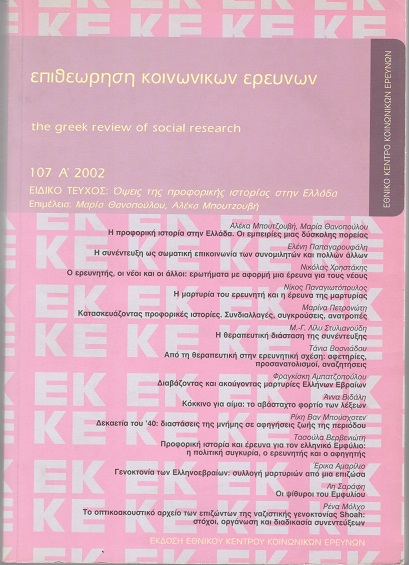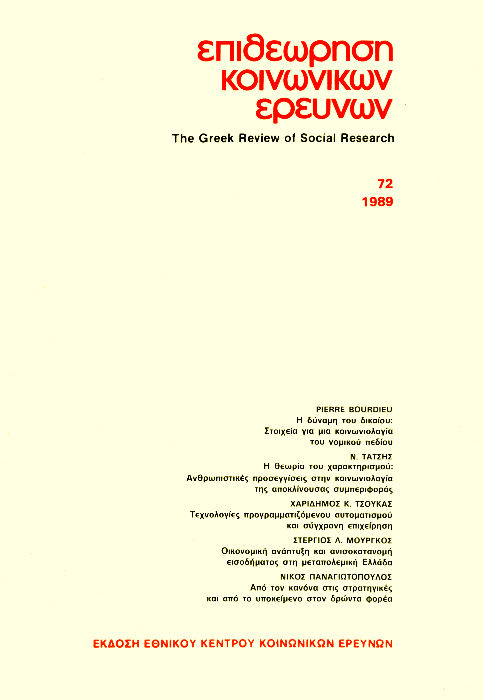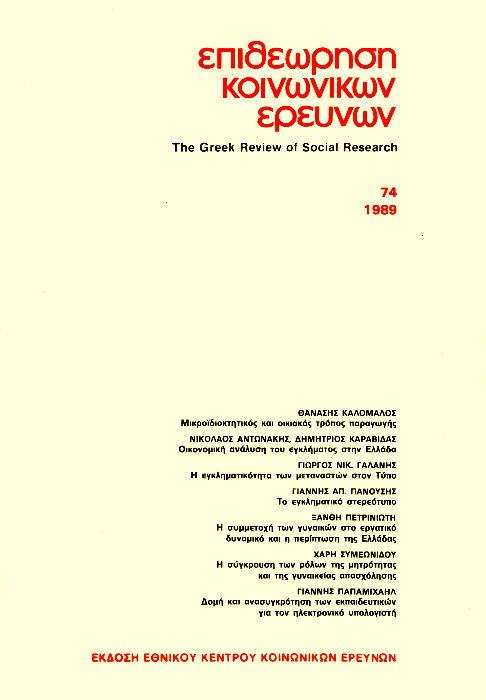Η μαρτυρία του ερευνητή και η έρευνα της μαρτυρίας
Abstract
Ο συγγραφέας επιχειρεί να καταδείξει πως η μελέτη της σχέσης του ερευνητή και της «προφορικής μαρτυρίας» του κοινωνικού υποκειμένου οδηγεί στο ζήτημα της φιλοσοφίας της ιστορικής δράσης που εμπλέκεται αναπόφευκτα στα επιστημολογικά ζητήματα που θέτει η σχέση μεταξύ ερευνητή - φορέα και αντικειμένου - υποκειμένου - αφηγητή. Μέσα στην προοπτική αυτή ο συγγραφέας θίγει ορισμένα ασύνειδα προαπαιτούμενα της σχέσης που εγκαθιδρύεται από και- εγκαθιδρύει τη «μαρτυρία» ως μαρτυρία και το λόγο ως λόγο μαρτυρίας. Τα επιστημονικά και επιστημολογικά ζητήματα που τίθενται στο επίπεδο της ερευνητικής σχέσης, κατά την άσκηση της προφορικής ιστορίας, μας οδηγούν, άλλη μια φορά, στην προσπάθεια υπέρβασης της διένεξης μεταξύ, από τη μία μεριά, της μελέτης των αντικειμενικών θέσεων και των σχέσεων και, από την άλλη, της ανάλυσης των δράσεων, των λόγων και των παραστάσεων των κοινωνικών υποκειμένων.
Article Details
- How to Cite
-
Παναγιωτόπουλος Ν. (2002). Η μαρτυρία του ερευνητή και η έρευνα της μαρτυρίας. The Greek Review of Social Research, 107, 61–67. https://doi.org/10.12681/grsr.9179
- Section
- Articles

This work is licensed under a Creative Commons Attribution-NonCommercial 4.0 International License.
Authors who publish with this journal agree to the following terms:
- Authors retain copyright and grant the journal right of first publication with the work simultaneously licensed under a Creative Commons Attribution Non-Commercial License that allows others to share the work with an acknowledgement of the work's authorship and initial publication in this journal.
- Authors are able to enter into separate, additional contractual arrangements for the non-exclusive distribution of the journal's published version of the work (e.g. post it to an institutional repository or publish it in a book), with an acknowledgement of its initial publication in this journal.
- Authors are permitted and encouraged to post their work online (preferably in institutional repositories or on their website) prior to and during the submission process, as it can lead to productive exchanges, as well as earlier and greater citation of published work (See The Effect of Open Access).








